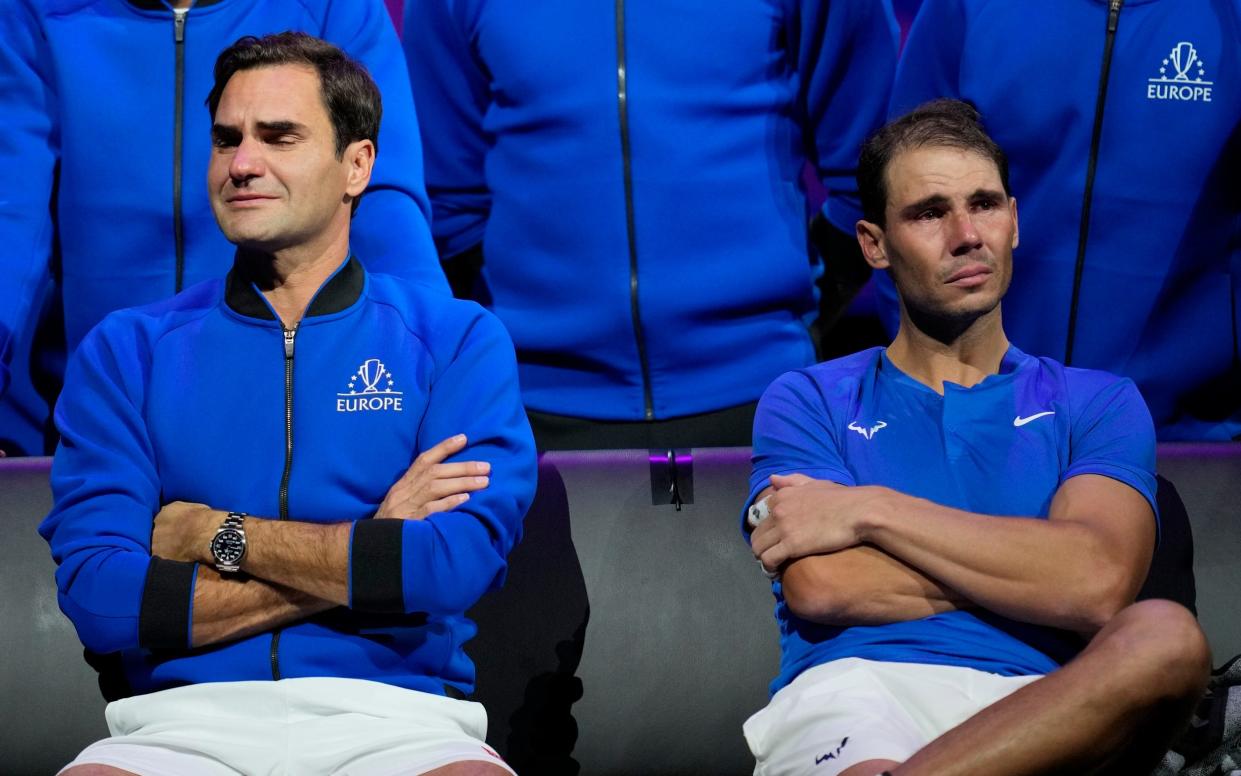Federer: Twelve Final Days, review: bloodless, sweatless, but very very tearful

Nice guys do finish first, but they don’t make thrilling documentary subjects. Federer: Twelve Final Days (Amazon Prime Video) is a respectful valedictory tribute covering the close of Roger Federer’s tennis career, from the moment he records his retirement announcement to his final appearance on court at the Laver Cup in London. Behind-the-scenes access will please Federer fans, but the best documentaries are the ones that dig into the angst and the excess, and Federer is just too Swiss for that.
At one point, the eight-times Wimbledon champion recalls being criticised for not putting up more of a fight when losing. “I didn’t quite understand what that meant: do I have to grunt, do I have to sweat more, do I have to shout more, do I have to be more aggressive towards my opponents? I tried, but it was all an act. I’m not like that. It’s not my personality.”
Which is not to say that he gives nothing away here, because he lays his feelings bare over the prospect of leaving the game he loves. He’s a crier. The 90 minutes are awash with tears. Federer cries. His wife and children cry. Most of all, Rafa Nadal cries, because he and Federer have a touching bond despite their years of on-court rivalry. Federer gives an emotional speech after playing his final match – a doubles game with Nadal – and later admits that two things triggered his tears: seeing his wife, and the prospect of not playing with Nadal again. There is sweet archive footage of the pair together in their younger years.
The documentary is as unshowy as its subject. Half of it consists of interviews with Federer and family, and half follows Team Europe at the Laver Cup in 2022. His teammates include Nadal, Novak Djokovic and Andy Murray, and they speak about him with generosity. It is enjoyable to watch their dressing room camaraderie and mutual respect. But the other three, you sense, are looking at Federer’s retirement and feeling apprehensive about their own.
Federer’s No 1 fan Anna Wintour apparently suggested that this film be made, proposing it as a “private video” and volunteering the services of Vogue content creator Joe Sabia. Oscar-winning director Asif Kapadia was then brought in to give it some heft. Kapadia’s past films have focused on mercurial characters: Diego Maradona, Ayrton Senna, Amy Winehouse. Here, his touch can only be detected in small stylistic flourishes: slow-motion, grainy archive, melancholic music.
It succeeds as a limited portrait of a decent, deservedly popular champion. And it compares favourably with the recent David Beckham series on Netflix: here are two sportsmen with millions in the bank and plenty of brand deals, each with a photogenic family. But only Federer comes across as the genuine article.

 Yahoo News
Yahoo News 
